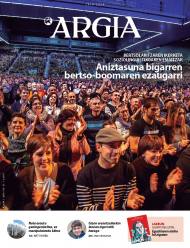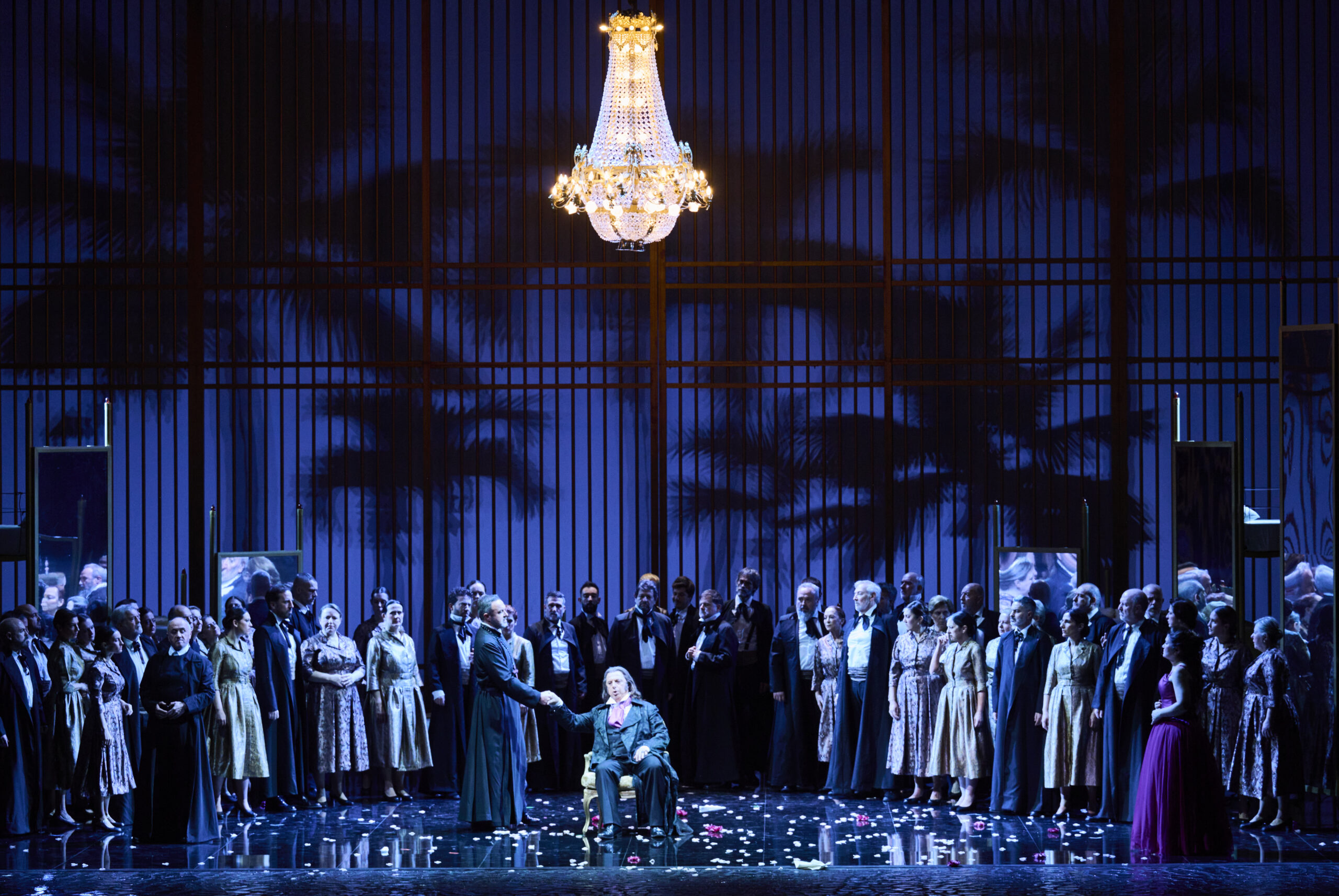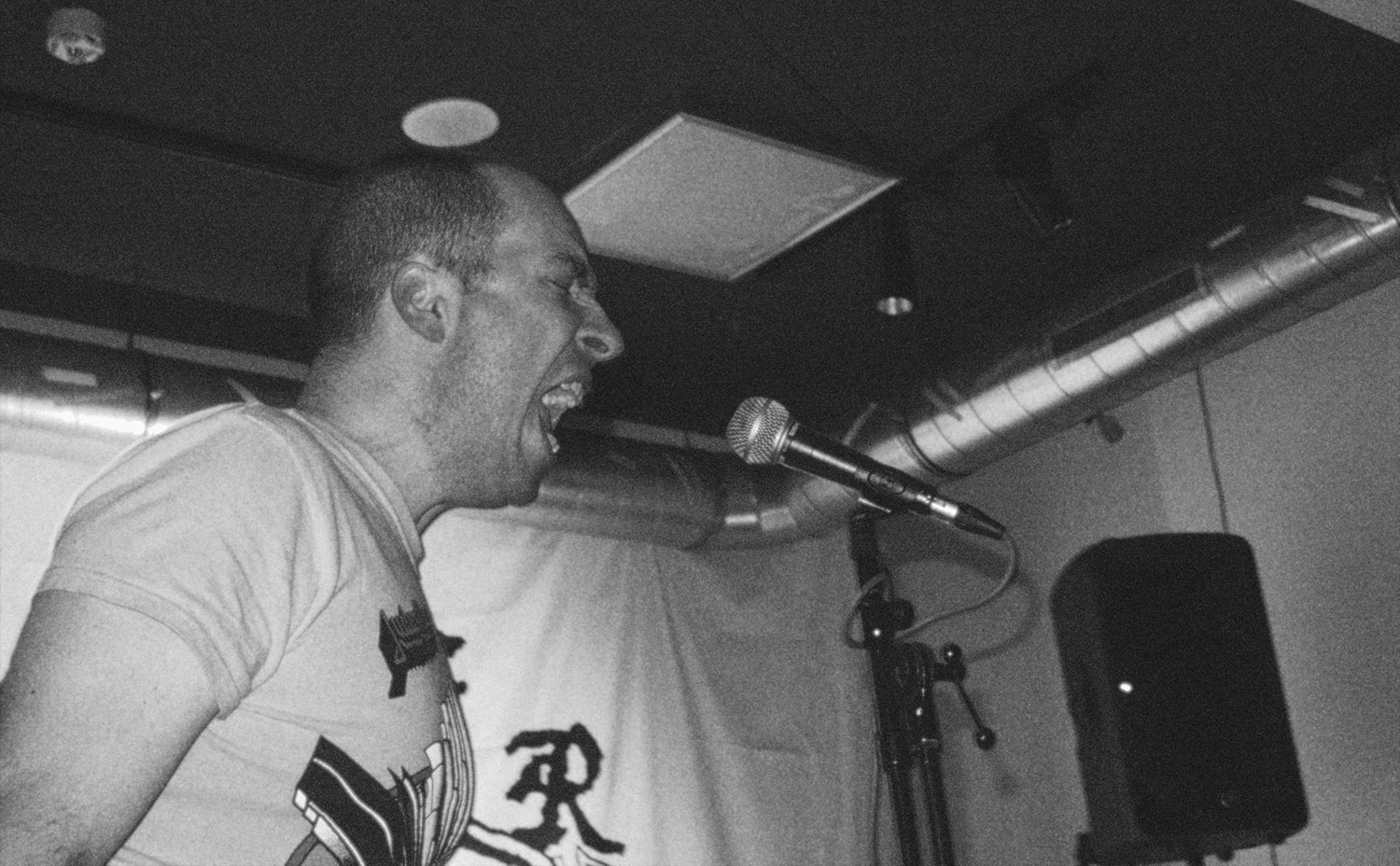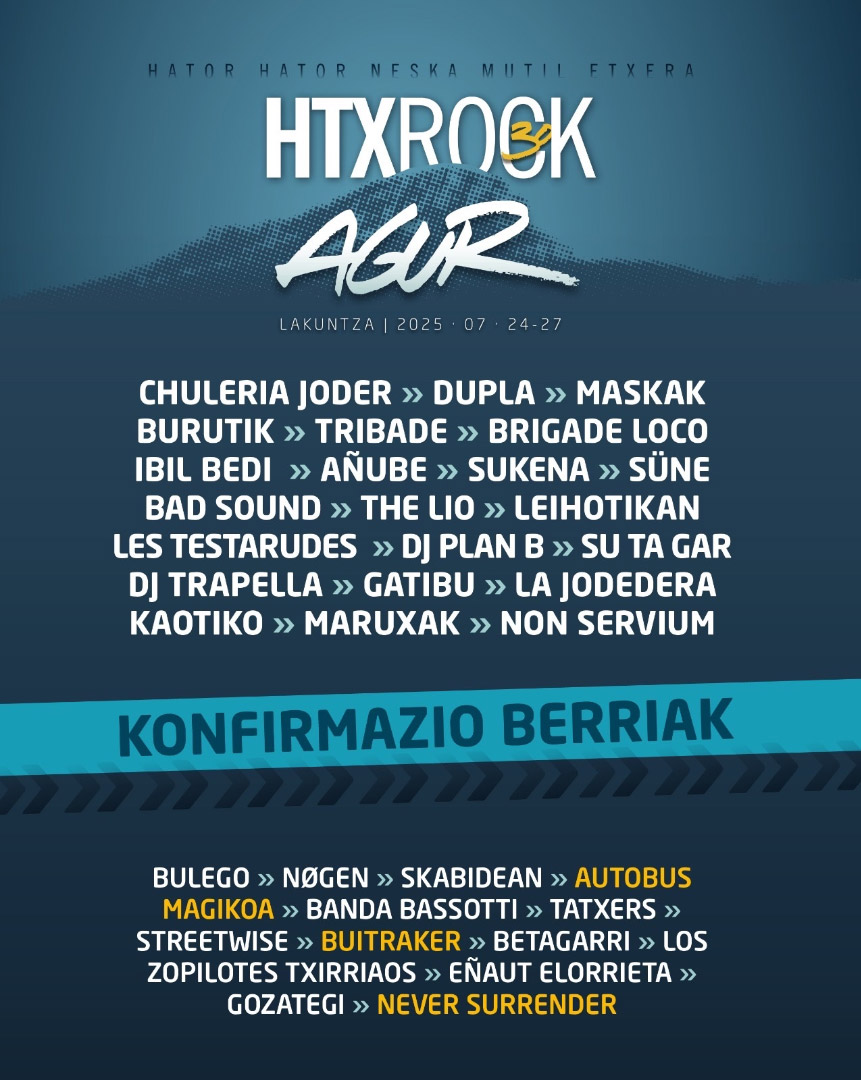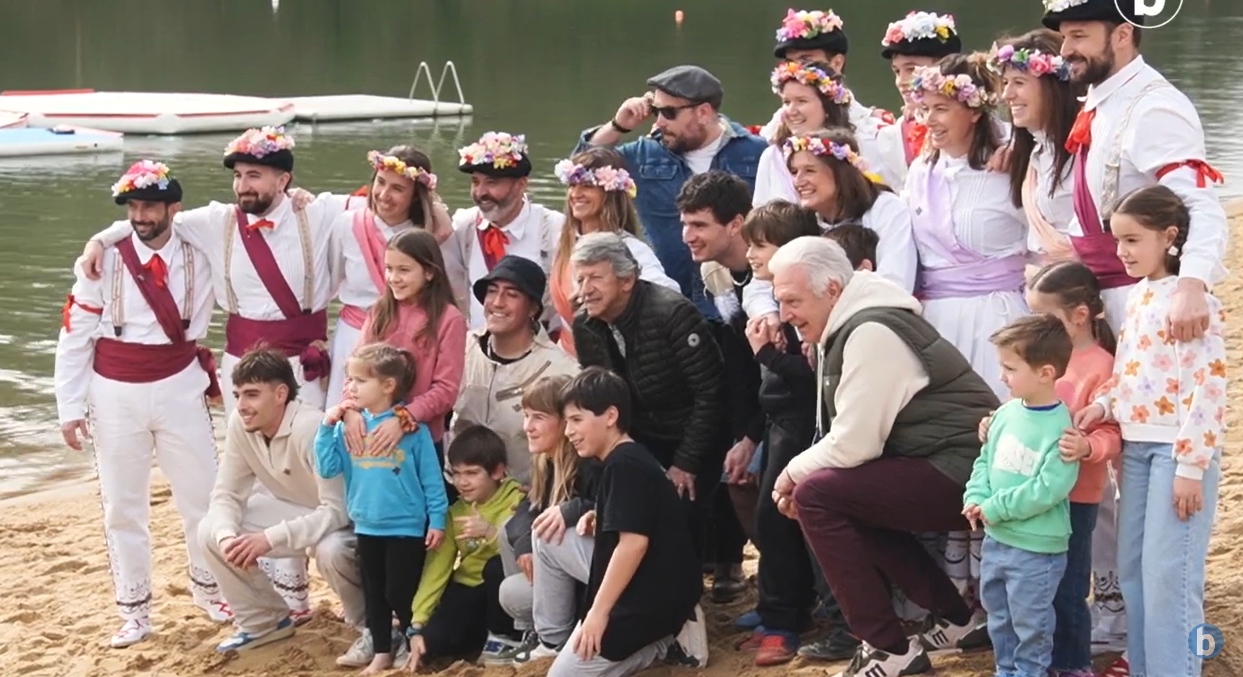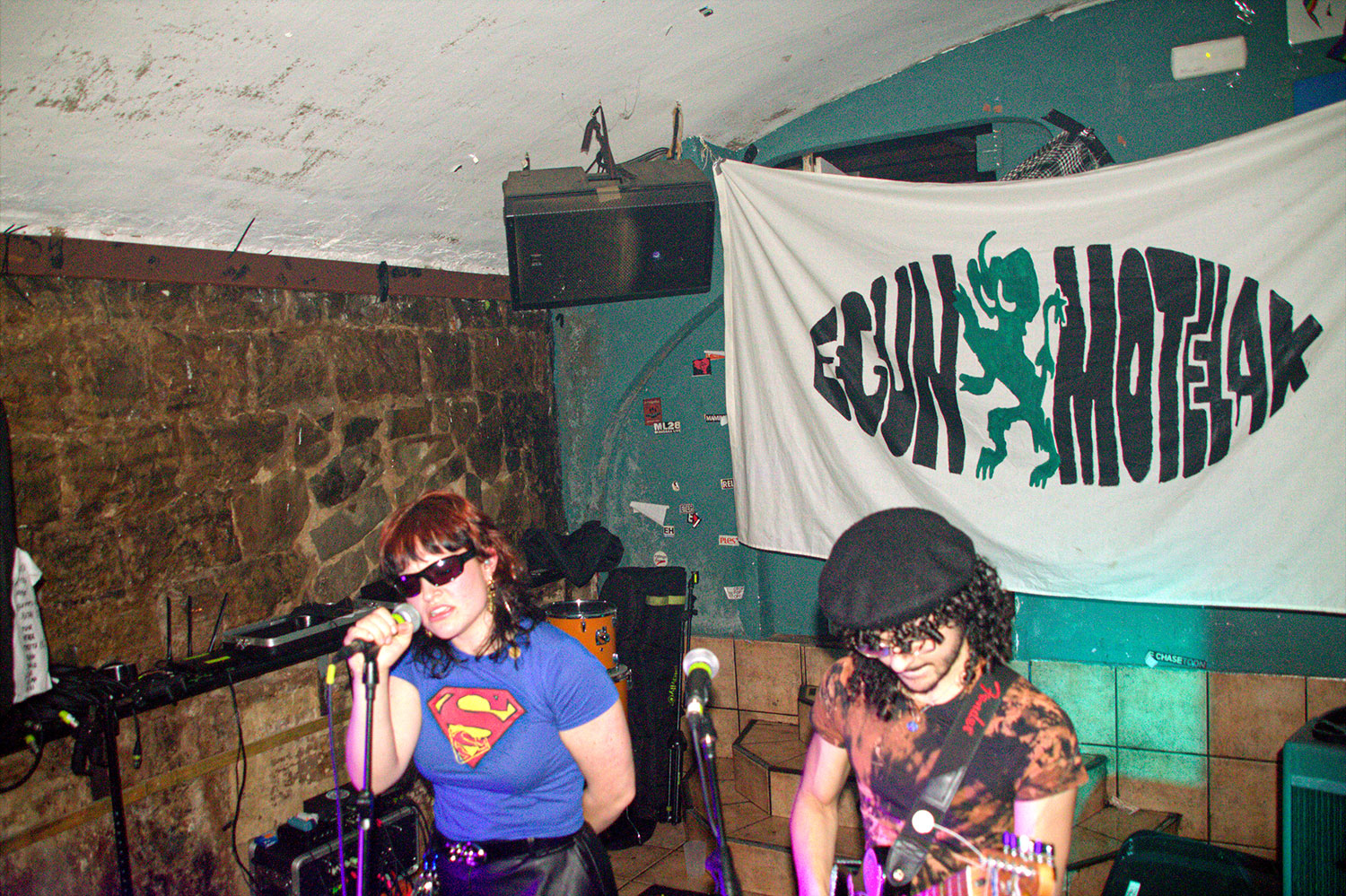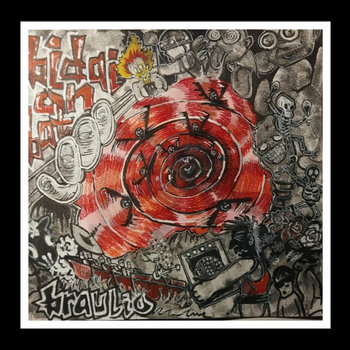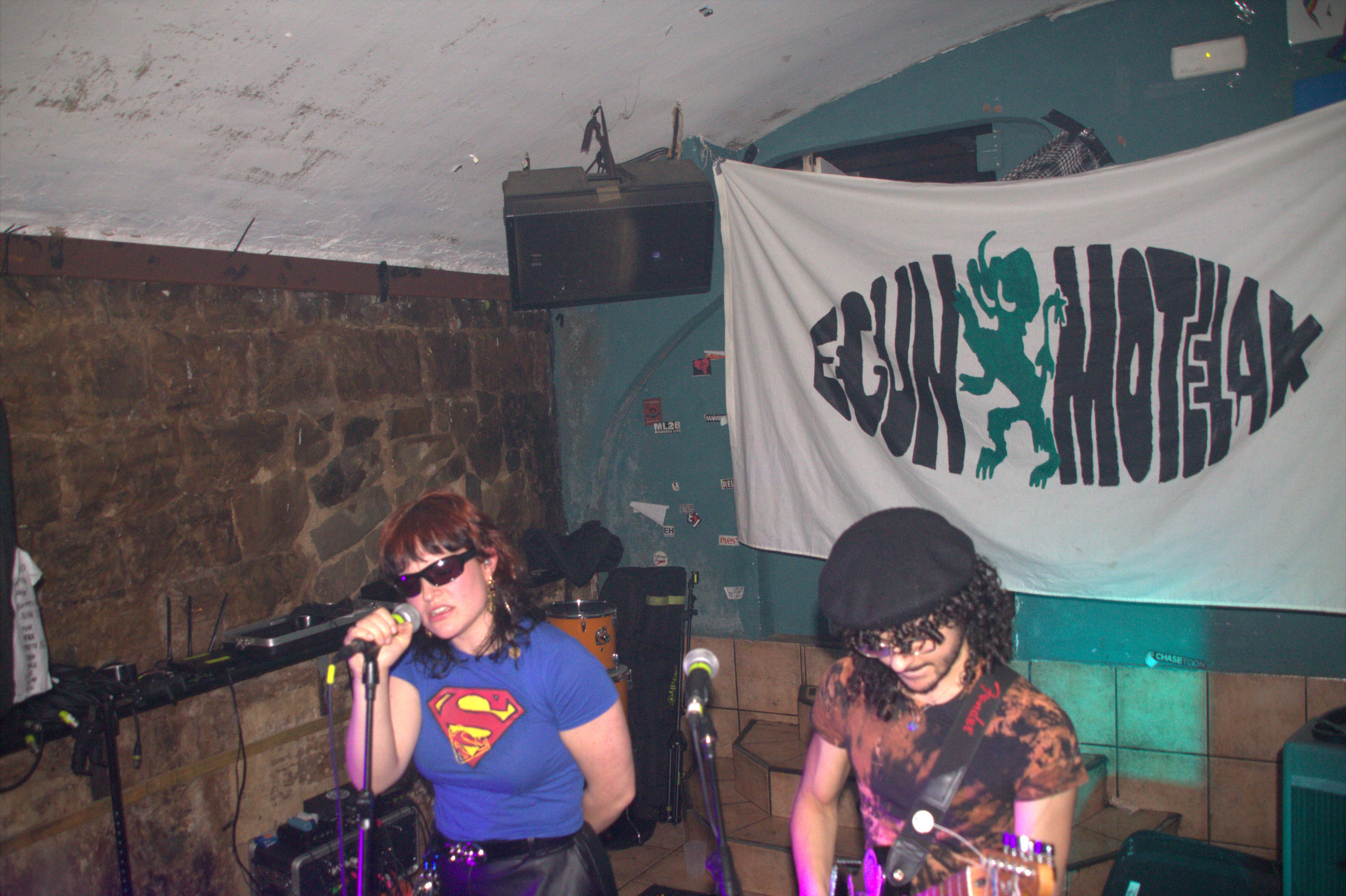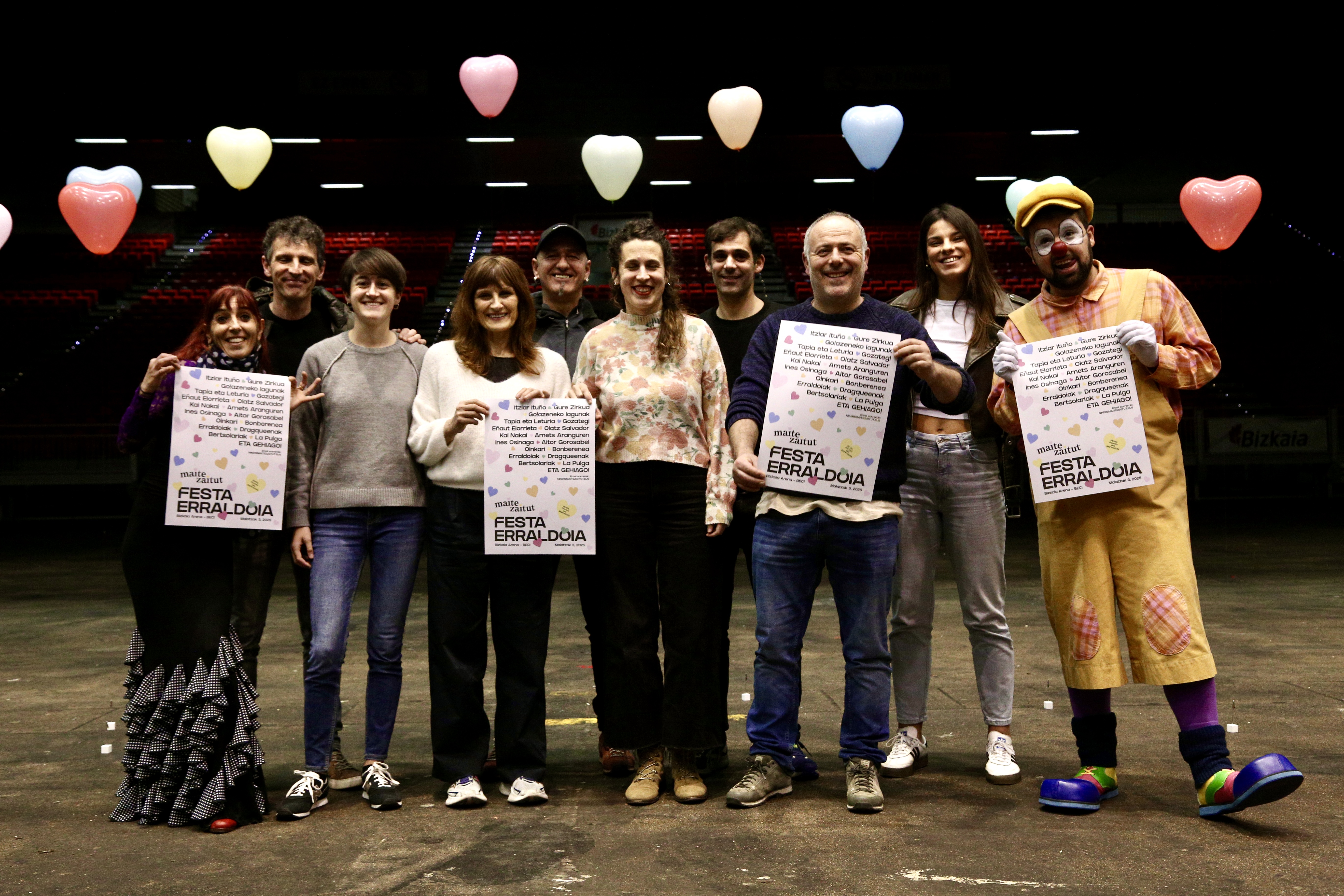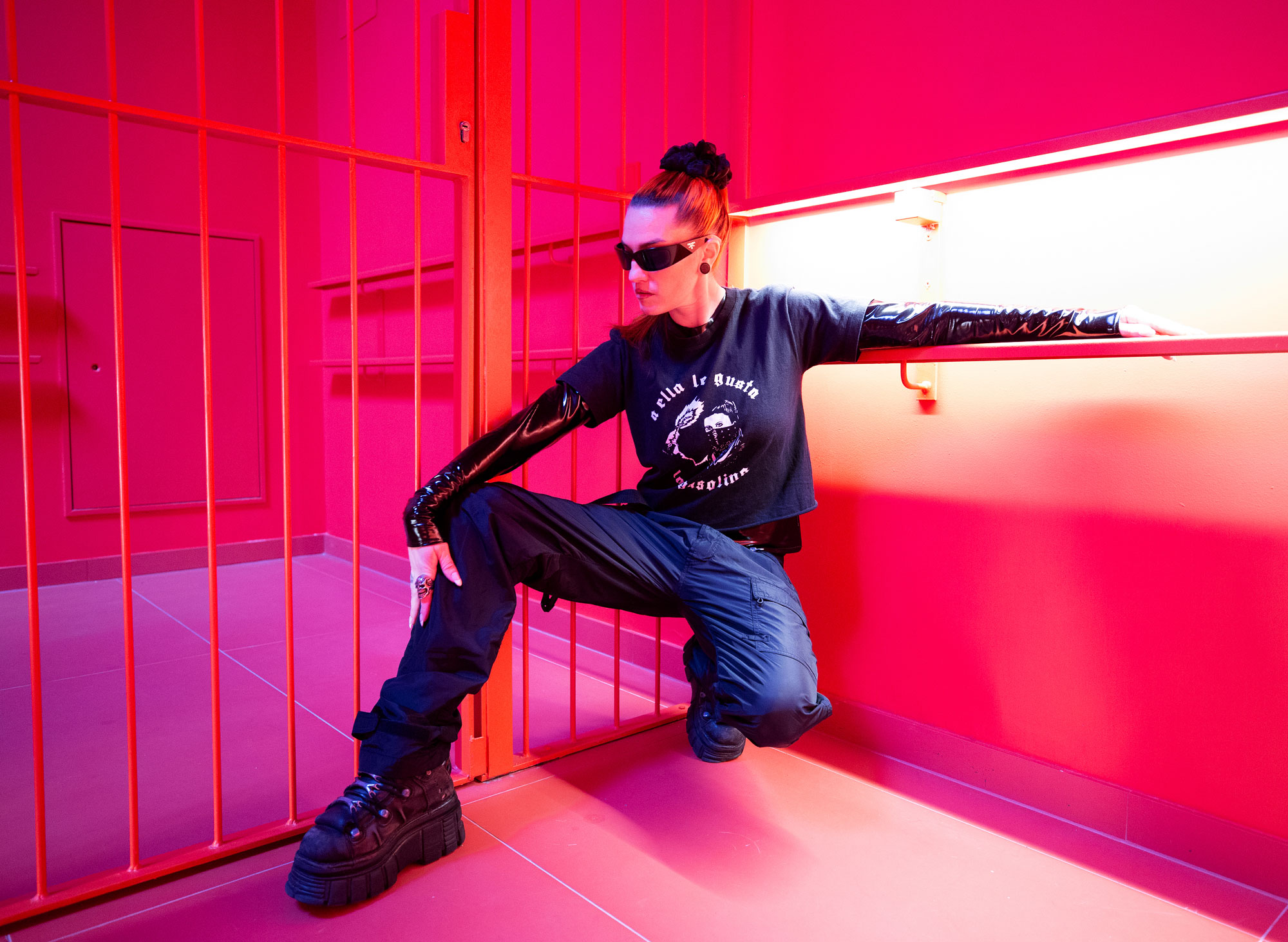One of us and the noise germ
- The French thinker Jacques Attali told us that we should judge every society for its noise. If so, what does the Basque noise say? This is the series of three articles that we address. In the first one, we will review the trajectory of a group as interesting as unknown in the Basque Country: One of us.
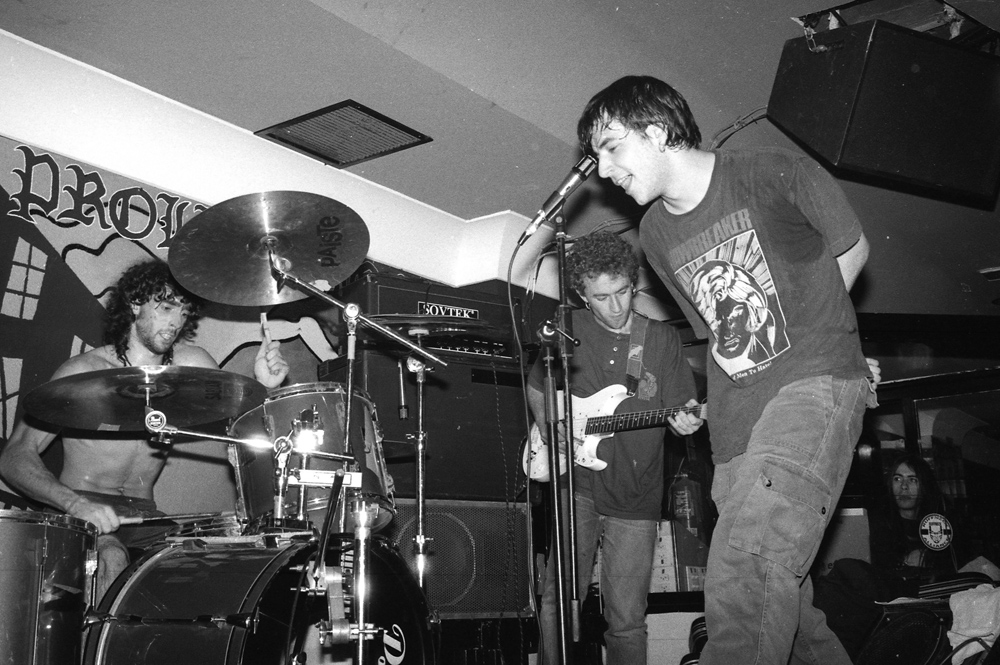
A musical journalist doesn't need any great excuses to meet Xabier Erkizia. In fact, the trajectory of the lesakarra offers sufficient support to start an interesting dialogue: the books he has written lately can be the subject of conversation – for example, his latest work Il Rumore Lontano – can also reflect on the groups he has produced – Ainara LeGardon or Grande Days recently – asking about his collaborations in numerous media or uncovering the fruits of constant sound experimentation. There is, of course, sufficient reason to give the floor to Erkizia.
In any case, we have sought to address another end of rope that comes from the same knot, taking as a starting point the exhibition Music in the Basque Country 1968-2018, recently curated and that can still be visited in the Museum of Fine Arts of Bilbao. There, the musician and researcher has chosen not to make a somer analysis of the melodies that have been cultivated in our environment in the last 50 years and focus on the winding journey he has made to arrive to adopt the forms that Basque music has today. To do so, he has inevitably had to look at every corner and, beyond the famous names, has also looked at creators who have been crossing the diffuse borders between music, noise and sound that are their own. We would also like to do something similar, to try to get a better understanding of the details of Basque noise.
One of us
The Gutariko Bat group is a group to which few people could enter a list of this kind. Erkizia has not done so either, perhaps on a subject of humility or shame. In fact, it was Xabier Erkizia himself who was running in that group, as well as playing the guitar and taking over the samples. This name, which is not mentioned in traditional genealogies, keeps an interesting story. Although Gutariko Bat is a foreign name that he does not like to explore in the dark Basque subsoil, in the French State things were very different for the group for several years.
“In the French state we had a great success, reaching to play in front of about 300 people. We would never have foreseen it. We were invited to play from Bordeaux, Pau or Toulouse with foreign groups and when we arrived we realised that we were cartel heads. The fans also knew our songs, knew when the rhythm changes were coming.” When they came home, those in the house rarely believed in what they said. In fact, things were very different in the south of the border, as the echo of the Gutariko Bat group has never been too big. In the French state, however, musical journals were dedicated to writing articles about the group and, in general, the group gained notoriety in some circuits. Erkizia says that they themselves were not fully aware of what was happening. “So, imagine we didn’t have an e-mail, so our record label was the only source to be aware of what was going on.”
It all started at the concert they offered in Bermeo along with Portobello Bones. As soon as they were still on the stage, they got in the band and offered to record a live record. It was such a fascination that it was created in other musicians. These first songs were recorded in the studies Amanita de Hazparne, in 1997, in a single shared with the aforementioned French group. That single traveler walked the way. One day Stephan Krieger, head of the label and distributor Amanita, told them the need to hold a meeting, because it was important. The truth is that the songs they recorded aroused the interest of some of the great names of the rock of the time: Ian McKaye (Dischord Records, Fugazi) and Jello Biafra (Alternative Tentacles Records, Dead Kennedys) were in charge of asking and reporting on the group. Steve Albini (Big Black, Shellac) went even further and expressed his desire to record his own album when he heard the Single. It was amazing, of course.
Gutariko Bat published a seven-inch work (Ama 41, 1998) and three more songs from several collections. In 2006, the collective Arto Artian compiled a album by Gutural and another by Akauzazterlan in a collection in which all the songs of the group were finally collected in CD format. Eight songs in total. It is said that they recorded many more songs, both at the test site and in the studio. Anyway, these songs are stored on a hard drive, since when the bassist Iban Zubieta passed away, the preferences of the group members changed radically and the project was over. Because those songs are not within our grasp, it's only through imagination that we can judge what they were going to be able to do. Who knows what of those first eight seeds could have flourished if the team's trajectory had not been so fast.
Time of desire
What the Gutariko Bat group was doing was not easy to hear. It was a very strong and aggressive music that, in addition, consciously disdained the identifiable formulas. Many would interpret what they were doing as noise and certainly in those times – the group formed in 1993 – not many would dare to do so. Erkizia has confessed that when they came to an identifiable formula, they tended to cut and start with something else. They wanted to give up comfort. The program will also remember how they fascinated groups like This Heat, us Maple or Laddio Bolocko, to the point of stopping rehearsing and listening to the discs with their mouths open. They couldn't understand how that music was made. It was new, unprecisely shaped, sometimes mistaken and uncomfortable.
The very concept of noise also has to do with this attitude, according to Erkizia. “Noise is what it does against the canon, if there is anything. That's why it depends on place and time. Without any intention of belittling those who do, of course, but it’s not the same thing to do noise-rock in the 1990s as it is today.” Noise generation has always been contrary to the model or standard, whether aesthetic, ideological or political. He has always pointed out the error and the other, which can have multiple resonances and uses. Potentiality is almost infinite, because it contains both reprobation and all that can be.
Gutariko's didn't want to be more than a punk rock band from the 1980s. They were also not particularly aroused by the participation in the great festival of claims, not because they could be ideologically distant, but because they did not want to be part of a machinery like this. They didn't like the marked tours. They wanted to reject the slogans of protest and use the voice more as an instrument, put the volume on the same level as other instruments and pay more attention to the percussion of words than to the message. Instead of looking at the usual structures, they played with silence and speed changes forming a collage. The flight of the canon placed them in a suggestive medium and that, instead of becoming a problem, was a source of pleasure for the Bera team.
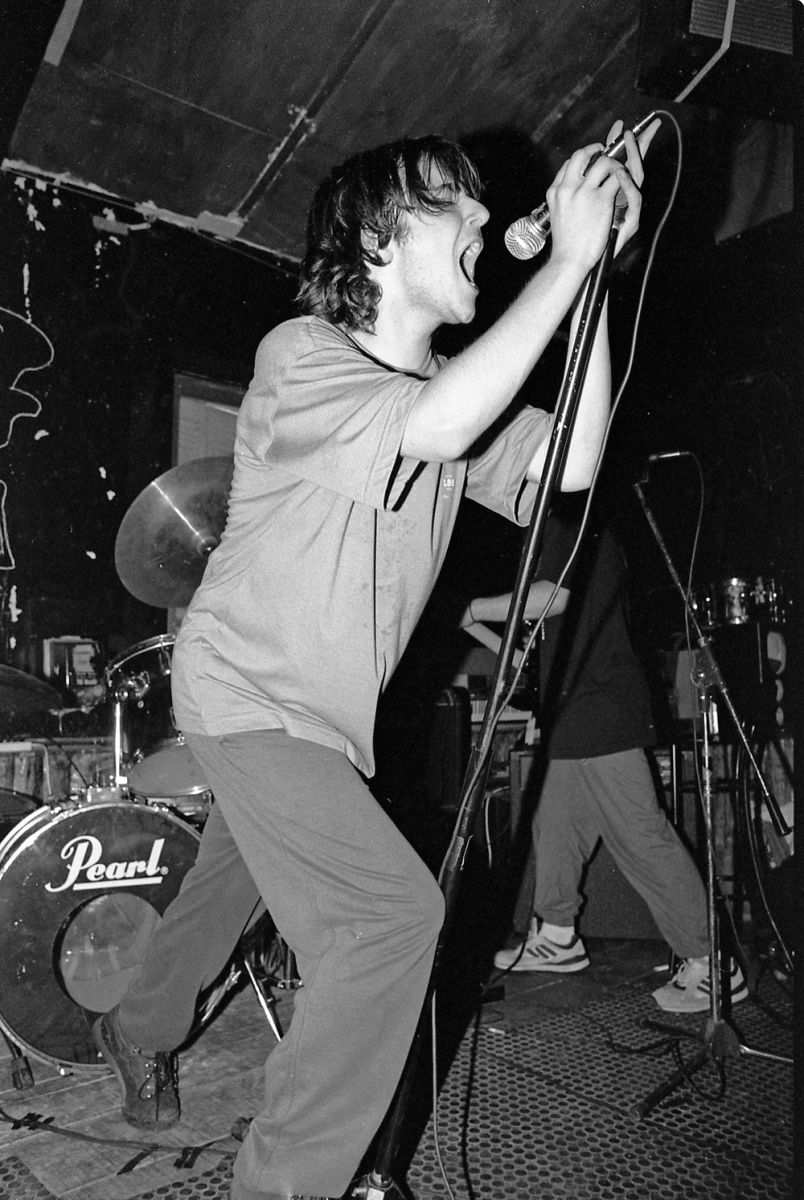
In those years, Erkizia and her friends waited for the albums distributed by Amanita to arrive. At first they wanted rock aldrebés, then they resorted to free jazz and abstract electronics. As if a mugalari were being treated, Erkizia remembers the enthusiasm they felt when passing the box across the limits of Hazparne's album. He made stops in Bilbao, Azkoitia, Donostia and Bera, to distribute the records he was wearing. But many times, at the customs office, his friends waited for him and came to Bilbao with almost empty hands, selling most of his records. Such was the hunger that new sounds had. He also remembers when he met the Akauzazte group at the Durango Fair. Seeing that they were carrying the music inside a closed can, the desire was awakened: I didn't know what was going to be there inside, but I wanted to hear it. That day, after walking from one side to the other without knowing how to open the can without spoiling the inner cassette, he managed to hear it and during the night he was unable to sleep.
It is said that noise is an intuitive instrument, which is governed by desire. No matter how ambiguous and dirty that desire is. “Behind the noise there is a desire to escape the model and return the music to its original character, to reset and to emerge the meaning of oneself.” The irrational and provocative are characteristic of noise, sometimes reaching parodious extremes. However, for Erkizia, the key is to prioritize desire, to immerse yourself in the unknown and to let you guide your mind without making fully conscious choices.
One of us probably hadn't installed any imitable canon in our house, but it could happen. We can also understand noise as a detriment to rational logic, and sediments in that continued flight also affect the creators of the area. Erkizia has confessed that, in his view, as has happened in other territories, Basque discord “has not been able to metabolize noise” and sometimes “has acted in a patrimonial and rather shortsighted manner” when it comes to accepting and promoting new proposals. Confession has therefore come in other ways. An example of this is, for example, the Izkiriatu work that I have found from the Lisabö group. As they prepared the coral record, they asked Erkizia if she would be willing to participate, which gave them their assent and created the issue of deliberation. The song, besides drinking the sound of the Gutariko Bat group, had a brief and explanatory letter: “Every now and then, in this violation, I will bite the desire, because at least one part is neria, it is neria! at least one part.”
FITXA
Zer: OLBEk antolatutako Gaetano Donizettiren ‘La favorite’ opera.
Nork: Euskadiko Orkestra Sinfonikoak (zuzendaria: Riccardo Frizza) eta Bilboko Operaren Abesbatzak (zuzendaria: Boris Dujin).
Noiz: otsailaren 18an.
Non: Bilboko Euskalduna Jauregian.
Olor
Noiz: martxoaren 9an.
Non: Bilboko Sarean espazioan.
---------------------------------------------------------
Esperantza. iz. Nahi edo desiratzen dena gertatuko delako edo lortuko delako uste ona.
Izen horixe jarri zion Jokin Azpiazu Carballo Olor ermuarrak bere... [+]
22 talde gehiago iragarri dituzte Lakuntzan uztailean izanen den HatortxuRockerako: Bad Sound, Dupla, Su Ta Gar, Chuleria Joder!, Brigade Loco, Leihotikan, Burutik, Tribade, Maskak, Les Testarudes, Non Servium, Añube, Dj Plan B, Gatibu, DJ Trapella, La Jodedera, Süne,... [+]
Bidea da helmuga
Kokein
Balaunka, 2024
--------------------------------------------------
Eibarko rock talde beterano hau familia oso desberdinetako lagunek osatu zuten aspaldi eta ia fisurarik gabe hamarkadatan eutsi dio. Izan ditu atsedenak, gorputzak hala eskatu... [+]
Elgarrekin izena du Duplak egin duen aurtengo abestiak eta Senpereko lakuan grabatu zuten bideoklipa. Dantzari, guraso zein umeen artean azaldu ziren Pantxoa eta Peio ere. Bideoklipa laugarrengo saiakeran egin zen.
Duela 150 urte, 1875eko martxoaren 7an jaio zen Maurice Ravel musikagile eta konpositorea, Ziburun. Mundu mailan ospetsu dira haren lanak, bereziki Boleroa. Sarri aipatzen da Parisen bizi izan zela, kontserbatorioan ikasi zuela aro berri bateko irakasleekin, munduko txoko... [+]
Zuloa
Merina gris
Sonido Muchacho, 2025
-------------------------------------------------------
Euskal Herrian ez da orain arte horrelako musika elektronikorik egin. Esango nuke Merina Grisek historian euskaraz egin den elektronika eta hyperpop diskorik landuena egin... [+]
Gazteagotan baino lotsa handiagoa dauka, baina horrek ez dio saltsa askotan ibiltzeko gogoa kentzen Leire Zabalza Santestebani (Iruñea, 1990). Beste gauza askoren artean, Motxila 21 musika taldeko kidea da. Nabarmendu du musika gauza asko aldarrikatzeko bide izan... [+]
Bidai on bat
Braulio
Autoekoizpena, 2024
-----------------------------------------------------
Nik ez nioke talde bati Braulio izena jarriko; eta seguruenik inork gutxik hasiko luke lan bat sei minutuko iraupena duen kanta batekin. Baina hauei parra die eta horri esker... [+]
Hiuzz + Bloñ + Adur
Noiz: otsailaren 15ean.
Non: Iruñeko Aitzina tabernan (Egun Motelak kolektiboa).
--------------------------------------------
Larunbat goiza Iruñean. Neguko eguzkitan lanera doazen gizon –eta ez gizon– bakarti batzuk... [+]









